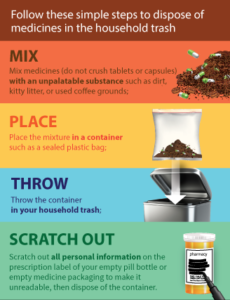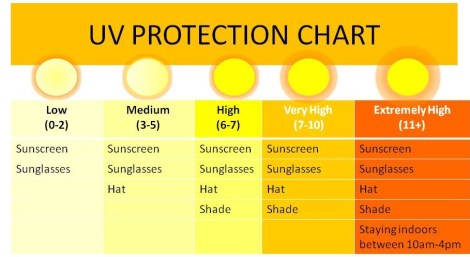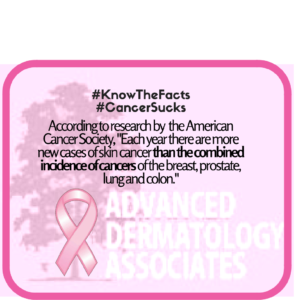Renewing Skin Beauty: Springing Forward
Technically speaking, spring begins this year on March 20th. Although for some of us in the northeast who are continuing to dig out from the remnants of winter storm Stella; the rest of nature is beginning to awaken from winter’s hibernation. Renewing Skin Beauty – Springing Forward.
Lawrence Jaeger of Advanced Dermatology Associates provides tips to renew your beauty – spring forward to younger, healthier skin.
Spring Forward – Renewing Your Skin Beauty
“Winter’s end is here. The last few month have been cold, dry winter air, which is harsh on the skin. As the temperatures start to rise, removing dead cells can renew and refresh your skin for spring and the summer months ahead” – Lawrence Jaeger, NYC Dermatologist.
Seek out a dermatologist: Advanced Dermatology treatments.
A dermatologist can help you understand how your skin is aging and help guide you to the best ingredients, products and procedures to keep your skin looking and feeling it’s healthiest best for years to come.
Also, if you have any risk factors for skin cancer, or if you have a high degree of sun exposure, you should see your dermatologist regularly. A dermatologist will be able to perform screenings and tests that can diagnose any problems, and the dermatologist can help recommend treatment to maximize your skin health.
Microdermabrasion was developed to treat acne and minimize acne scarring, as well as to minimize pox marks, wrinkles, age spots, or other scarring. During the procedure, a dermatologist uses a small, handheld tool to exfoliate your skin, revealing the newer, smoother layer of skin beneath. It is a safe and painless treatment with minimal side effects.
- Microdermabrasion can improve the appearance of dull skin, uneven skin tone, fine lines and wrinkles, blackheads, and even sun damage.
Dermal fillers help to diminish facial lines & restore volume or fullness in the face. Therefore injections and fillers are also highly encouraged during this spring period.
Chemical peels, botox, or laser skin treatments – all additional dermal treatments which can be used help to slow down the effects of aging. These advanced dermatological injections provide long-lasting results and can be administered in your dermatology office, including in one single visit.

Daily use of sunscreen is a priority.
Sunscreen is still your best resource in the next months.
Even in the spring, the sun’s rays can be harmful. In fact, ultraviolet (UV) radiation from sunlight is the greatest in North America during the late spring and early summer, according to the U.S. Centers for Disease Control and Prevention. Additionally all skin has been covered up by clothing or materials which have shielded it from the skin. Therefore, you skin is even more susceptible to sun damage during the warmer and sunnier months.
Remember most moisturizers with sunscreen aren’t water-resistant, so you can’t rely on them to protect your face or body if you swim or sweat. Some aren’t broad spectrum sunscreens either, so they don’t shield you from ultraviolet A rays, the kind that can cause aging and skin damage. The bottom line is that everyone, even those with darker skin, should use sunscreen when they’re out in the sun for any length of time.
- When you go out, dress appropriately. Sunscreen is just one part of a smart sun protection program. Cover up with a long-sleeved shirt or light jacket to protect your arms and a hat to protect your face and neck.
- Remember sunscreen on cool and overcast days. Clouds expose a lot of UV rays; up to 80 percent of them reach the earth.
- Be Prepared. Apply sunscreen to exposed areas—face, ears, back of the neck, and hands—15 to 30 minutes before you go out to give it time to start working. And reapply sunscreen every two hours, if you’ll be outside that long.
Don’t forget to moisturize: Hydration.
During the spring and summer, you need hydration. Higher temperatures result in oilier skin for everyone. Since there’s humidity in the air, a heavy moisturizer isn’t necessary. Therefore, use a lighter moisturizer during spring and summer months.
Lotion Up: While your skin does get a dose of hydration from the warmer climate, sweat and sun exposure actually dehydrate the skin, so lotion is still necessary.
Remember to apply the cream to your hands and nails as well as the rest of your body – these areas are often easily overlooked!
Re-fresh the medicine cabinet: Update old skin care products.
Toss and purge old cosmetics and skin care products. These products have a shelf life. Old, outdated products can harbor bacteria and lose their effectiveness.
Check the dates on your products. You may want to toss the following:
- Anything past the expiration date
- Products that appear dry or crusty
- Anything that has changed consistency, color, or smell
- Anything with an SPF older than one year (SPF loses its effectiveness over time and it’s just not worth the risk.)
- Mascara older than three months. (Always toss it after three months, regardless of how much there is remaining.)
- Old, dirty makeup brushes and sponges
Cleanse your makeup brushes.
Think that having a bad pimple is painful? Ever considered that you could possible become infected by a deadly form of a staph infection known as MRSA as a result of your make-overs, particularly dirty brushes.
Therefore, washing your makeup brushes is extremely important and sanitary for your cosmetic & beauty health. Because oil and bacteria can get caught in the bristles and cause clogged pores, breakouts, general skin irritations and other disorders. It’s necessary to wash your brushes.
So, stop procrastinating and give them a good clean soaking.
Natural wash: Fill a glass with warm water and add one tablespoon of a gentle, clarifying shampoo or gel cleanser, then swish brushes in the glass to create a lather. Rinse well and use a comb to detangle the bristles and get them back in their original shape. Let brushes dry in an upright glass out in the sun — this can/will help destroy bacteria and cuts dry time.
Renewing Skin Beauty – Springing Forward
Again these are just some general skin care tips on how to maintain salon-quality skin, hair & nails for the spring and summer months. In order to achieve your optimum skin health – schedule an appointment with your local dermatologist office to develop a personal regimen based on your needs. Renewing Skin Beauty – Springing Forward















